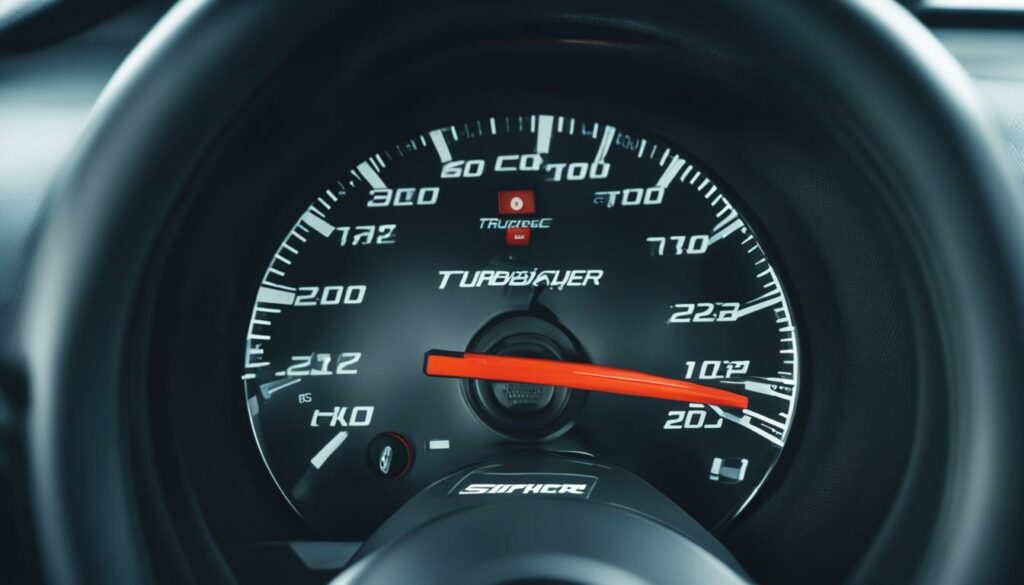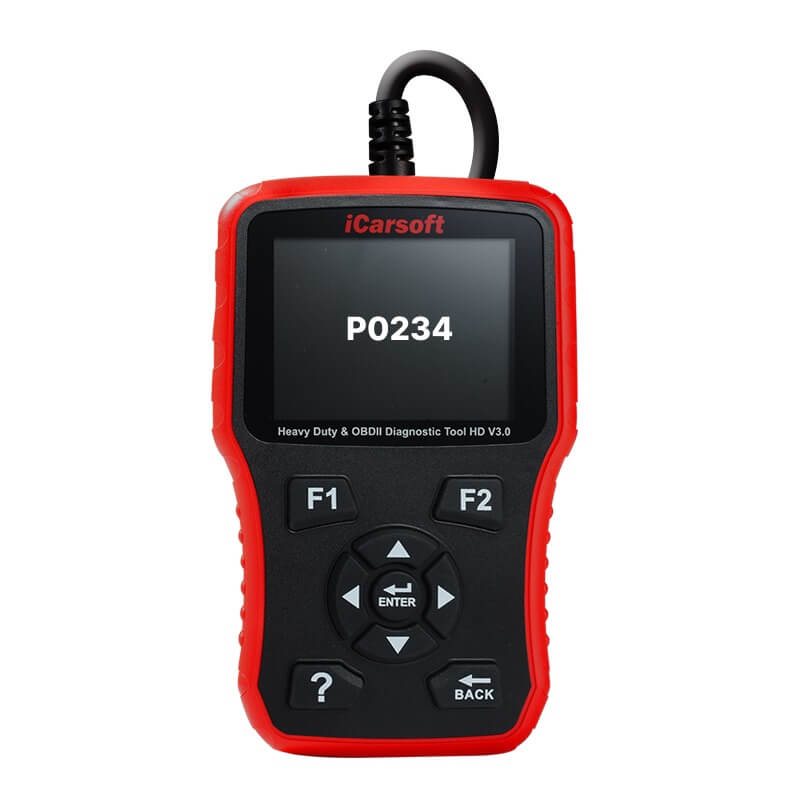P0234 – Turbocharger / Supercharger Overboost
POSTED IN pcodes
Welcome to our comprehensive guide on the P0234 trouble code, which is related to turbocharger or supercharger overboost. If you’ve encountered this code or you’re curious about what it means, you’re in the right place. In this article, we will explore the causes, symptoms, diagnosis, and repair steps for P0234, helping you troubleshoot and resolve the overboost problem in your vehicle.
P0234 is a trouble code that indicates a potentially dangerous boost pressure in the turbocharger or supercharger system. This can put excessive stress on engine components and may lead to failure if left unaddressed. Several factors can contribute to this code, including a malfunctioning wastegate valve, deformed or clogged hoses, a faulty turbocharger boost sensor, or worn gaskets in the turbocharging system.
If you’re experiencing the P0234 code, you may notice symptoms such as the activation of the check engine light, engine overheating, loss of power during acceleration, knocking in the cylinders, misfiring, or harsh shifting. These signs vary depending on the severity of the overboost issue and the specific vehicle.
To diagnose and repair P0234, you can follow a series of steps. Start by scanning the onboard computer with an OBD2 scanner to retrieve the trouble code and any other relevant codes. Inspect the wastegate control hose, turbocharger hoses, and boost sensor voltage for any issues. Use a vacuum pump to test the wastegate valve and other turbocharger components. If necessary, replace damaged components and worn gaskets in the turbocharging system.
If you prefer professional assistance, expert technicians can provide accurate diagnosis and repair for P0234. However, an alternative solution is also available. You can explore the option of permanently removing the code by uploading the Engine Control Unit (ECU) file to a dedicated portal. Keep in mind that this alternative solution should be approached with caution, as it may affect the overall performance and reliability of your vehicle.
Buy tested tuning file for Adblue / EGR / DPF / Adblue off now!
Now that you have an overview of the P0234 trouble code, its causes, symptoms, diagnostic process, and possible solutions, you’re better equipped to tackle the issue and get your vehicle back on track.
Key Takeaways:
- P0234 is a trouble code related to turbocharger or supercharger overboost.
- Causes include a malfunctioning wastegate valve, deformed or clogged hoses, a faulty boost sensor, or worn gaskets.
- Symptoms may include check engine light activation, engine overheating, loss of power, knocking in the cylinders, misfiring, or harsh shifting.
- Diagnosis involves scanning the onboard computer, inspecting components, and checking the wastegate valve.
- Professional assistance is available, and an alternative solution is to permanently remove the code by uploading the ECU file.
Causes of P0234
The P0234 trouble code can be attributed to several potential causes that result in an overboost condition in the turbocharger or supercharger system. Understanding these causes is essential for effective diagnosis and repair. Here are the primary factors that can contribute to the occurrence of the P0234 code:
- Malfunctioning Wastegate Valve: A broken or jammed wastegate valve can prevent the proper diversion of gas away from the turbo, leading to excessive boost pressure.
- Deformed or Clogged Hoses: Hoses that are deformed or clogged can impede the timely release of pressure, causing it to accumulate and result in overboost.
- Faulty Turbocharger Boost Sensor: A bad turbocharger boost sensor can provide inaccurate readings or fail to detect high pressure, leading to overboost conditions.
- Issues with the Wastegate Actuator: A malfunctioning wastegate actuator can impact the pressure regulation mechanism, causing overboost situations.
- Worn or Misaligned Gaskets: Worn gaskets or misalignment in the turbocharging system can allow excess pressure to build up, resulting in overboost.
It is important to address these causes effectively to prevent further damage to the engine and ensure the optimal functioning of the turbocharger or supercharger system.
“Understanding the causes of the P0234 trouble code is crucial for effective diagnosis and repair. By identifying issues such as a malfunctioning wastegate valve, deformed or clogged hoses, faulty turbocharger boost sensor, problematic wastegate actuator, or worn gaskets, professionals can take the necessary steps to resolve the overboost condition.”
Symptoms of P0234
When dealing with the P0234 trouble code, it’s important to be aware of the potential symptoms that may arise. These symptoms can provide valuable clues and help identify the underlying issue. Here are the most common symptoms associated with P0234:
- Activation of the check engine light on the dashboard: This is a common indication that something is amiss with your vehicle’s turbocharger or supercharger system.
- Overheating engine: The increased pressure caused by the overboost condition can result in higher temperatures and potential engine overheating.
- Loss of power during acceleration: You may experience a significant decrease in power when trying to accelerate due to the excessive boost pressure.
- Knocking in the cylinders or misfiring: The overboost condition can lead to abnormal combustion, causing knocking sounds or misfires in the engine cylinders.
- Harsh shifting or transmission overheating: The elevated pressure can also impact the transmission, leading to harsh or delayed shifting as well as potential overheating of transmission parts.
Please note that these symptoms may vary depending on the specific vehicle make and model, as well as the severity of the overboost issue. It’s crucial to address these symptoms promptly to prevent further damage to your vehicle’s engine and drivetrain.
To give you a better understanding of the symptoms associated with P0234, here is a visual representation of the potential effects:

| Symptom | Description |
|---|---|
| Activation of the check engine light | The check engine light on the dashboard illuminates, indicating a potential issue with the turbocharger or supercharger system. |
| Overheating engine | The increased boost pressure causes higher temperatures, leading to excessive engine overheating. |
| Loss of power during acceleration | The excessively high boost pressure limits the engine’s performance, resulting in a noticeable loss of power when trying to accelerate. |
| Knocking in the cylinders or misfiring | The overboost condition can cause abnormal combustion, resulting in knocking sounds in the engine cylinders or misfires. |
| Harsh shifting or transmission overheating | The increased pressure can also affect the transmission, causing harsh shifting or delayed gear changes, and potentially leading to transmission overheating. |
Diagnostic and Repair Steps for P0234
To diagnose and resolve the P0234 trouble code, follow these diagnostic and repair steps:
- Scan the onboard computer using an OBD2 scanner or similar tool to retrieve the P0234 trouble code and any other relevant codes.
- Examine the freeze frame data to gather additional clues about the underlying issue.
- Inspect the wastegate control hose and turbocharger hoses for blockages, cracks, or deformation. Replace these components if necessary.
- Measure the voltage of the boost sensor’s wiring and connector using a multimeter to rule out any electrical faults. Compare the reading to the standard values specified by the car manufacturer. Replace any defective components.
- Check the wastegate valve and other turbocharger components for proper operation using a vacuum pump. If the wastegate actuator or internal wastegate is malfunctioning or jammed, it may need to be repaired or replaced.
- Inspect the turbocharging system for any worn or damaged gaskets. Replace them as needed.
Following these steps will help identify the cause of the P0234 trouble code and guide the necessary repairs for resolving the issue.
| Step | Description |
|---|---|
| 1 | Scan the onboard computer using an OBD2 scanner. |
| 2 | Examine freeze frame data for additional clues. |
| 3 | Inspect wastegate control hose and turbocharger hoses. |
| 4 | Measure boost sensor voltage with a multimeter. |
| 5 | Check wastegate valve and other turbocharger components with a vacuum pump. |
| 6 | Inspect turbocharging system gaskets. |
Professional Assistance for P0234
If you require professional assistance in addressing the P0234 trouble code, there are experts available who can provide the necessary expertise and guidance. These professionals have experience in diagnosing and repairing turbocharger and supercharger systems, ensuring proper functioning and optimal vehicle performance.
By seeking professional help, you can benefit from their specialized knowledge and access to advanced diagnostic tools. They can efficiently identify the root causes of the P0234 code, such as a malfunctioning wastegate valve or faulty boost sensor, and recommend appropriate solutions. Additionally, they can ensure that all repair steps are carried out accurately to prevent further damage to the engine components.
Furthermore, professional assistance can save you time and effort by eliminating the guesswork involved in troubleshooting and repairs. They have the necessary training and resources to efficiently resolve the P0234 issue, allowing you to get back on the road safely and confidently.
The Benefits of Professional Assistance
- Expert knowledge and experience in turbocharger and supercharger systems
- Access to advanced diagnostic tools and equipment
- Accurate identification of the root causes of the P0234 code
- Recommendation of appropriate solutions and repair steps
- Prevention of further damage to the engine components
- Time and effort-saving troubleshooting and repairs
“Seeking professional assistance ensures that the P0234 trouble code is properly diagnosed and resolved, providing peace of mind and prolonging the lifespan of your vehicle.” – Expert Mechanic
Remember, it’s important to choose a reputable and reliable professional who specializes in turbocharger and supercharger systems. Don’t hesitate to ask for recommendations or perform thorough research to ensure you receive the best quality service.
However, if professional assistance is not available or desired, there is an alternative solution for addressing the P0234 trouble code. The option of permanently removing the code can be explored by uploading the Engine Control Unit (ECU) file to a dedicated portal. This solution should be approached with caution, as it may have implications for the overall performance and reliability of the vehicle.

Seeking professional assistance is recommended to ensure accurate diagnosis and effective resolution of the P0234 trouble code. However, if professional help is not an option, the alternative solution of permanently removing the code through manipulation of the Engine Control Unit (ECU) file should be approached with caution.
Common Vehicles Affected by P0234
The P0234 trouble code can occur with any car, but it is most commonly found in certain makes and models. If you experience the P0234 code on your vehicle, it is important to ensure that the diagnostics are carried out correctly and that the error is still relevant. Checking for symptoms associated with the problem and exploring options for resolving it is recommended.
| Make | Model |
|---|---|
| Ford | Focus |
| Ford | Transit |
| Ford | C Max |
| Vw | Golf |
| Vw | Passat |
| Audi | A3 |
| Audi | A4 B7 |
| Audi | A6 |
| Vauxhall | Astra |
| Vauxhall | Corsa |
| Vauxhall | Insignia |
| Peugeot | 308 |
| Peugeot | Boxer |
| Peugeot | 207 |
| Opel | Corsa D |
| Opel | Astra H |
If you own one of these common vehicles affected by the P0234 trouble code, it’s crucial to address the issue promptly. Work with a qualified technician to diagnose and repair the overboost problem to ensure the proper and safe operation of your vehicle.
Conclusion
In conclusion, the P0234 trouble code indicates an overboost condition in the turbocharger or supercharger system of your vehicle. This issue can be caused by various factors, including a malfunctioning wastegate valve or control solenoid, deformed or clogged hoses, a faulty boost sensor, or worn gaskets. Ignoring this code can lead to excessive stress on the engine components and potential failure.
If you experience symptoms such as the activation of the check engine light, engine overheating, loss of power, knocking in the cylinders, misfiring, or harsh shifting, it is important to address the P0234 code promptly. Troubleshooting and repairing the issue involves scanning the onboard computer, inspecting and replacing components as necessary, and ensuring the proper operation of the wastegate valve.
If you prefer professional assistance, there are experts available who can diagnose and resolve the P0234 code correctly. However, you may also consider an alternative solution of permanently removing the code by uploading the Engine Control Unit (ECU) file to a dedicated portal. Keep in mind that this option should be approached with caution, as it may have implications for the overall performance and reliability of your vehicle.
Remember, the P0234 code can affect various makes and models of vehicles, including popular brands like Ford, VW, Audi, Vauxhall, Peugeot, and Opel. Therefore, accurate diagnostics and appropriate resolution are essential to ensure your vehicle’s optimal functioning and longevity.
FAQ
What is the P0234 trouble code?
The P0234 trouble code is triggered when the engine control module recognizes that the boost pressure in the turbocharger or supercharger system is dangerously high. This can result in excessive stress on the engine components and potential failure.
What are the common causes of the P0234 trouble code?
The P0234 trouble code can be caused by a malfunctioning wastegate valve, deformed or clogged hoses, a bad turbocharger boost sensor, or worn or misaligned gaskets in the turbocharging system.
What are the symptoms of the P0234 trouble code?
Symptoms of P0234 may include the activation of the check engine light, overheating engine, loss of power, knocking in the cylinders, misfiring, and harsh shifting.
How is the P0234 trouble code diagnosed and repaired?
To diagnose and repair the P0234 trouble code, steps may include scanning the onboard computer, inspecting and replacing damaged components such as hoses or sensors, and checking the wastegate valve for proper operation.
Is professional assistance available for the P0234 trouble code?
Yes, professional assistance is available for those who prefer it. Alternatively, there is an option to explore the permanent removal of the code by uploading the Engine Control Unit (ECU) file to a dedicated portal.
Which vehicles are commonly affected by the P0234 trouble code?
The P0234 trouble code can occur with any car, but it is most commonly found in certain makes and models. These include Ford vehicles such as the Focus, Transit, and C Max, Vw vehicles such as the Golf and Passat, Audi vehicles such as the A3, A4 B7, and A6, Vauxhall vehicles such as the Astra, Corsa, and Insignia, Peugeot vehicles such as the 308, Boxer, and 207, and Opel vehicles such as the Insignia, Corsa D, and Astra H.


